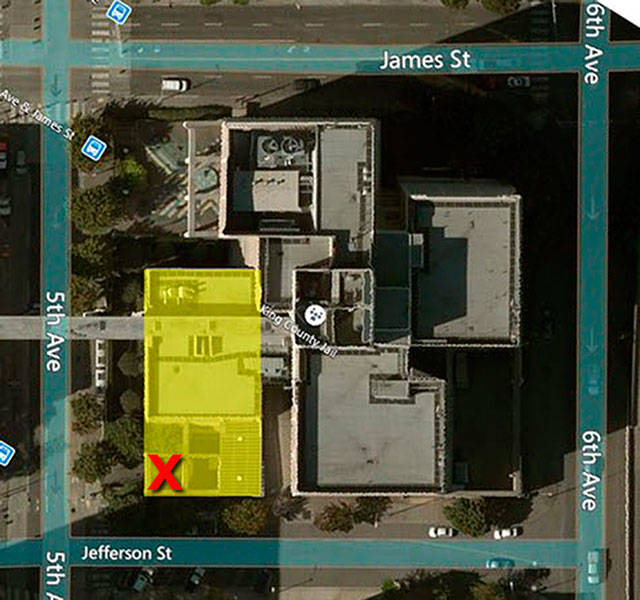The following is a press release from King County:
After Executive Constantine declared a Homeless State of Emergency in 2015, he made all King County department directors responsible for addressing the issue of homelessness, including identifying surplus facilities and properties that could be pressed into service in the fight against homelessness. In 2017, King County converted a former Public Health clinic in White Center and a Sheriff’s Office facility in Kenmore into family shelters, operated by Mary’s Place. In late 2015, King County transformed the 4th and Jefferson Building into a shelter for adults with pets.
Today, Oct. 11, Constantine announced that King County will operate a temporary 24-hour enhanced emergency shelter in the West Wing of the King County Correctional Facility.
“Throughout King County government, we are constantly asking: what resources can we leverage to help people off the streets? What innovations can we deploy? What new approach can we try? These questions become all the more urgent as the days become shorter and colder,” said Constantine. “These actions will help bring more people inside for the winter, and provide more outreach to those living on sidewalks, and in doorways, and parks.”
Until 2012, the space at 5th Avenue and Jefferson Street was used to house inmate workers and work release clients with 435 beds. It is currently used for staff education and training with classroom, training and physical fitness space, as well as equipment and records storage.
Under oversight by the Department of Community and Human Services (DCHS), the space would be converted to house between 125-150 single adults. Anyone without shelter would be welcome, including those exiting the justice system, a population identified by One Table as vulnerable to housing insecurity.
• Cost: Approx. $2 million capital improvement costs to prepare space; approx. $2 million for operating costs/year.
• Set up: 24/7 operations. Available space is on three floors, with office space for case management available on the first floor. Cots or bunks for sleeping. Individual lockers available for personal belongings. Bathrooms and showers.
• Provider: To be determined. Will work with service provider to develop infrastructure improvements and the onsite service plan (case management, employment, health and behavioral health, housing navigation).
As with every other shelter in the King County system, all stays are strictly voluntary, and those with historical trauma related to incarceration may choose to receive services at another location.
MODULAR HOUSING
Constantine also announced the purchase of modular housing units to create dormitory style bridge housing to help people transitioning from homelessness to permanent housing in the community. Housing is not time-limited.
Purchased in Houston, the modular housing units were formerly used for oil workers. Each unit is equipped with four bedrooms, storage space, a bathroom and shower. With one to two persons per bedroom, up to 160 people will be housed. DCHS will serve those prioritized for housing in the homeless service system.
• Cost: $90,000 per unit, plus $30,000 per unit to transport to King County. Total: $2.4 million. Operating costs are to be determined.
• Site: To be determined.
• Provider: To be determined
EXPANDED DAY CENTER, OUTREACH
King County will expand the 4th & Jefferson overnight shelter to include a day center and expanded street outreach.
The day center would offer a safe, warm place for people to come during the day (at least three overnight shelters are in the immediate area), hygiene services, and connections to case management and housing navigation assistance. Street outreach will help bring indoors people who are in the area and may be resistant to shelter or services.
• Cost: Operating costs approx. $1 million.
• Provider: To be determined. (Salvation Army currently provides the overnight shelter and case management during the limited service hours).
As previously announced, King County is working to convert Harborview Hall to overnight shelter space for 100 beds, and working toward expanding the shelter to 24/7 at a later date if feasible. Assessment of renovation needs for this site is currently underway.
In August, Constantine announced an order for 29 modular units to house approximately 100 people, the County’s first acquisition of modular housing to provide affordable, mobile units that can be placed into service much faster than units built by traditional construction. The County is also partnering with the City of Shoreline on a supportive housing project for 80-100 people that proposes to model modular construction for permanent affordable housing development.



